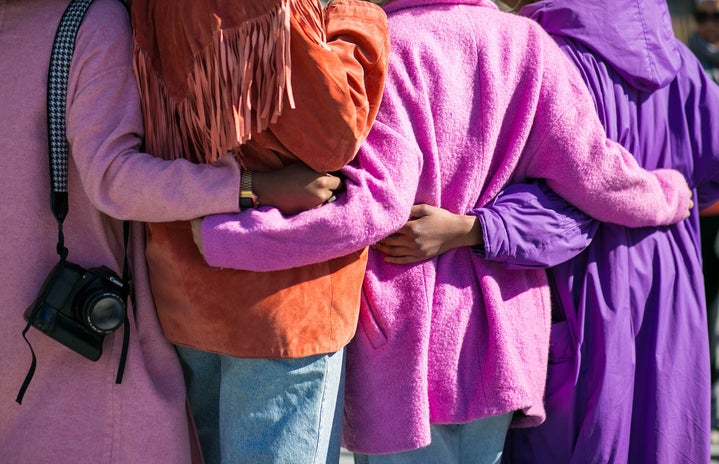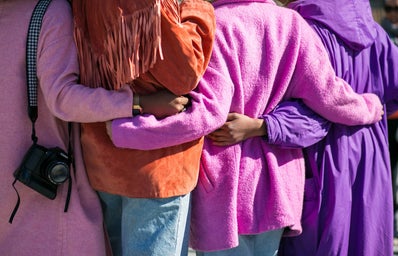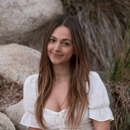How did you get involved with gender & sexuality and women’s resources? Was there something in particular that sparked your interest? What does your background look like?
I earned my bachelor’s degree from Vassar College with a major in psychology and minors in education and religion. Later, I earned a master’s in Cultural Foundations of Education from Syracuse University. Currently, I’m working toward a doctorate in Education Foundations, Organizations, and Policies from the University of Pittsburgh. I’ve been working in higher education for almost a decade now. My first higher ed position was at the LGBT Resource Center at Syracuse University, where I did student programming. Most recently, I was working on academic policy for graduate students at Pitt. In some ways, my current position as Associate Director for Gender & Sexuality in women’s resources is a natural next step for me. It’s an opportunity to apply my degrees to my career, all of which have a focus in social justice education. It’s also an opportunity for me to combine my programming & policy experience, and put it toward something I’m passionate about: women’s empowerment and gender equity.
What really brings me to this work is much more personal. As a woman, sexism has structured my life in various forms for as long as I can remember. As an example, when I was younger, I had trouble speaking in class because I felt like I wasn’t entitled to take up space and time in the classroom. We know that this is a common experience for girls and women, who are socialized to be small in so many different ways. We know it’s reinforced by internalized sexism among teachers, who will call on boys and men more often than girls and women, and who on average spend more time engaging with the contributions of boys and men than those of girls and women. So for me, this work is really personal- it’s an opportunity to play a role in transforming the inequalities that have constrained my own life.
But this work is also profoundly collective. I think we can only build a campus that’s better for women if we are also building a campus that’s better for queer people, trans people, people of color, working class and poor people, and disabled people. And that’s because women are also queer, trans, of color, working class, poor, and disabled. It’s also because sexism is interlocked with and dependent upon all marginalizing systems. To return to my classroom example, it wasn’t just sexism that kept me from contributing. I’m hard of hearing, and I was often hesitant to contribute to class discussion because I was afraid I’d be repeating something I hadn’t heard, and that I’d be punished for not paying attention. But it wasn’t that I wasn’t paying attention- it was that I couldn’t access all the information being shared because of my hearing loss. And I was afraid to advocate for the accommodations I needed, in part because being disabled made me feel unfeminine, and in part because advocating for myself meant taking up a lot of space, and that felt unfeminine, too. So I didn’t want to disclose my disability, and I didn’t want to advocate for accommodations. In my case, sexism and ableism combined to constrain my learning. Any transformation of sexism requires the transformation of ableism, just as it requires the transformation of heterosexism, cissexism, racism, classism, and all other systems of oppression. The Women’s Resource Center has a history of working from this kind of intersectional feminist framework, so I felt like I could do that kind of work here.
How long has the Women’s Resource Center been at Bucknell? Since joining, what have been some of your goals for the Bucknell Community (short or long term)?
I think the Women’s Resource Center was founded in the ‘80s, so it has a fairly long history here. This will be a learning year for me; I’m still learning how Bucknell operates, what the University does well and what it could do better, and what students want and need. One of my goals this year is to build relationships with folks who know Bucknell better than I do, to learn from them, and to use their insights to inform my work. I’m also learning through trial and error. I’m trying to be bold with programming, experimenting with different topics and formats to see what resonates and what doesn’t. Then I can build on what’s working and discard what’s not.
What are some of the events put forth by the Women’s Resource Center? Specifically, Feminist Fridays?
Feminist Fridays is a new program. Right now, it’s weekly, running every Friday from 4-6 PM in the Women’s Resource Center. Feminist Fridays are themed, and the themes are meant to be as broad as feminism itself. We wrote thank you cards to the staff of Transitions, our local domestic violence agency; we had a student-facilitated conversation about what constitutes good sex and how to achieve good sex with yourself or a partner, with consent as the floor, the baseline expectation, instead of the focus of the conversation; we watched a movie about the Janes, an old school abortion access activist network. This week, we’re inviting local activists to talk to us about Native American mascots: why they’re offensive, why they’re still so popular, and how we can support their struggle against the Native American mascot in local Bellefonte. Next week, we’re partnering with Fran’s House to organize a clothing swap. I want it to be educational but also to feel fun and bonding and meaningful, and I’m always searching for ideas, so I invite students to share some with me.
We also do Women of Color Wednesdays, a monthly community & discussion space for students, staff, and faculty who identify as women of color. This fall break, we coordinated a program called Leadership for Social Justice, which was meant to get students thinking about how to lead collectively, sustainably, and purposefully toward liberatory change. In the spring, I’m hoping to support Speak UP’s Sex Positivity Week and to put together some programming for International Working Women’s Day. I’m also supporting MLK Week programming with an abolition book club and a screening of the documentary Reflections Unheard: Black Women in Civil Rights.
What are some of the best/easiest ways for students to get involved?
Come to events, share programming ideas, ask to sponsor or facilitate or manage a program/event. I always want to make space for student ideas and leadership. Follow our social media or email me to join our email list: alf022@bucknell.edu. Stop by my office (ELC 062) to get to know me and let me get to know you, or invite me to connect with your organizations.


